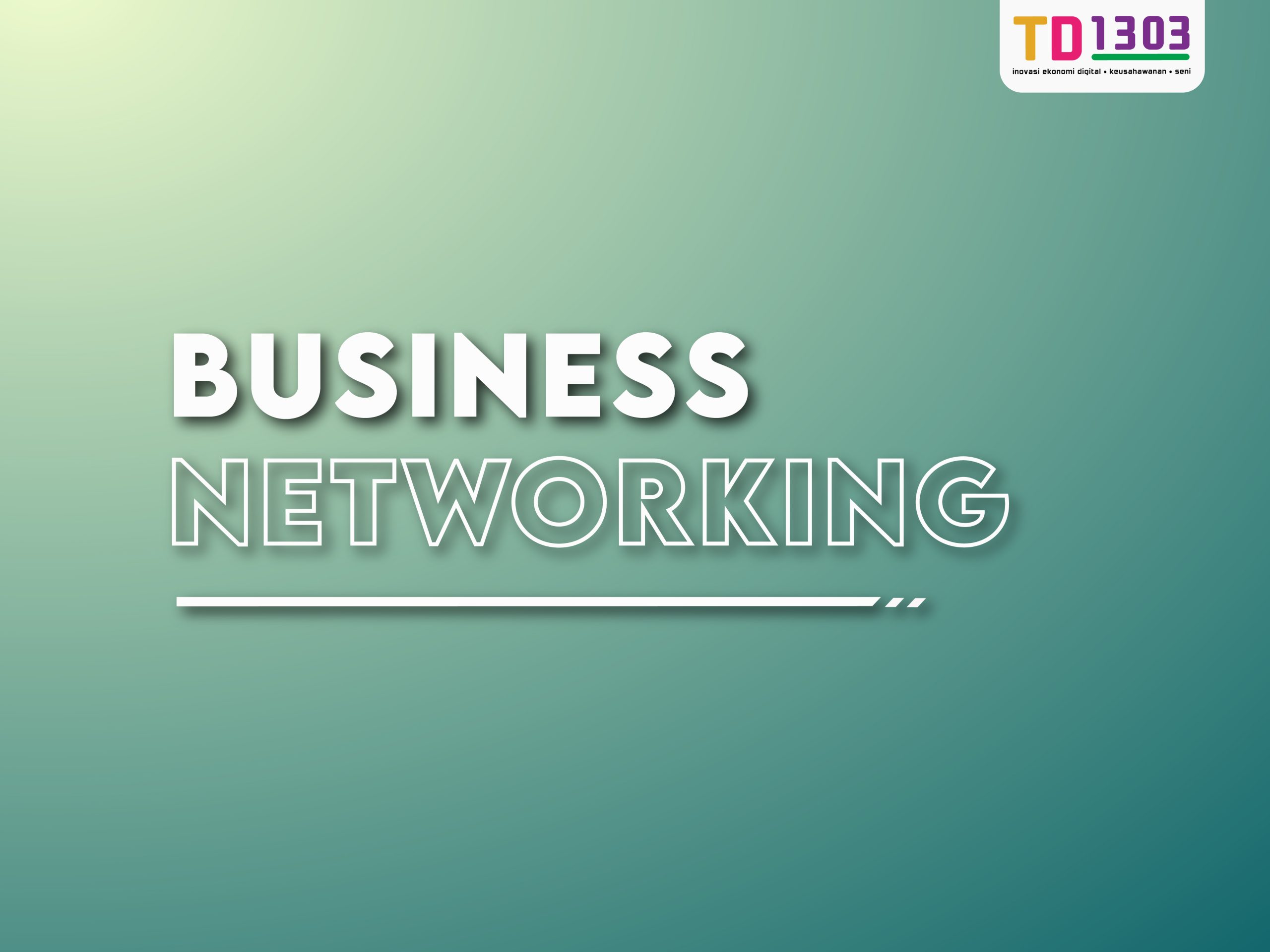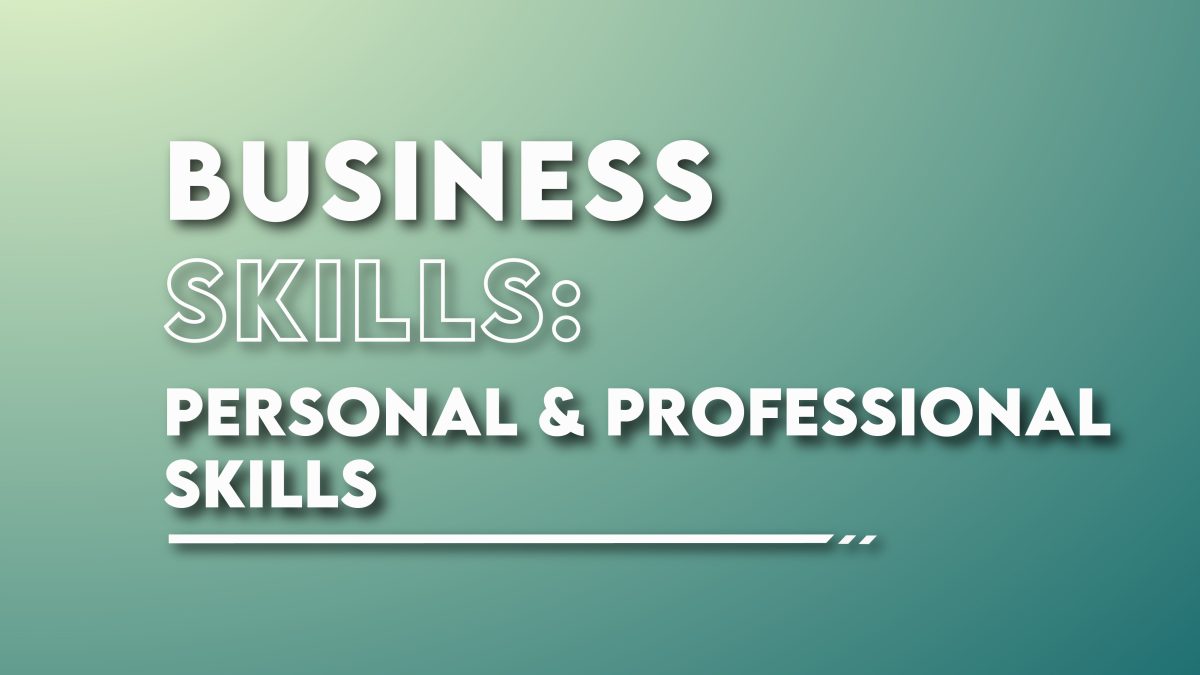
ALGORITMA TIKTOK
15/11/2022
Business Networking
30/11/2022Whenever we come across the term ‘business skills’, we often relate it to knowledge and intelligence, qualifications and even how tirelessly hard-working one is. While these traits are important to secure a job, they are not necessarily the determinants in developing successful business skills. This week’s post will discuss the seven most common business skills that can help set you apart from other employees and help you advance your career.
Before we go any further, let’s first understand business skills. Business skills come in various divisions; however, this week’s posting will dive deeper into two of its many divisions. They are personal skills and professional skills.
Personal skills are better defined as personality and behavioural traits that determine how people act in a workplace context, including how they manage themselves. It is typically the skills that are not taught in a classroom format. In contrast, professional skills are job-specified abilities an individual gains through training, experience and education. These two areas of expertise are crucial to becoming the most efficient, capable, and resilient employee. Listed below are three personal and professional skills that would benefit your workplace success.
Personal Skills
1. Communication Skills
The first and most in-demand soft skill is communication skills. Everything we do requires effective communication. Whether you are a business owner, a manager of a company or an individual involved in day-to-day business operations, possessing this skill will allow you to keep your team in the loop. Hence, everyone has the information they need to do their job. So, to communicate effectively, you must have sufficient knowledge of written, verbal and nonverbal communication. So, you might be asking, what are effective communication skills? Well, the answer is:
|
|
|
|
|
|
|
|
|
|
2. Leadership Skills
If you want to build long-term relationships with employees, investors, customers, and suppliers, it is critical to possess leadership skills. Leadership involves taking responsibility, assembling, mobilising and motivating team members toward a common goal and objective. To take the lead, a leader must be decisive in making difficult decisions, think critically through complex problems, motivate others to work passionately and possess great ethics in the workplace.
A great example is Tony Fernandes, the former CEO of AirAsia; during a crisis back in 2014, he confronted the situation up-front instead of leaving other people to do the job for him.
3. Time Management Skills
It is no secret that people who manage time properly are generally more productive and stick to deadlines. Knowing how to prioritise tasks to complete the essential jobs will benefit you and the team in moving the business forward. Two things to consider when managing time are:
- Learn how to prioritise – Focus on the activities that are most likely to deliver value to your business.
- Keep a to-do list – It gives you a basic summary of tasks that require immediate action and saves you the stress of thinking each time you need to hop on to the next project.
Professional Skills
1. Financial Management Skills
Financial management is one of the most important responsibilities of business owners and companies. Any activities run by the business will have an impact, either satisfactory or unsatisfactory, on the business’s financial performance, profits and cash flow. Thus, business owners must be capable of evaluating and controlling their financial needs. Some examples of financial management skills are:
- Analyse the current market
- Understand the benefits and risks of an investment
- Manage budget effectively
- Identify potential activities that could impact the company’s financial performance.
2. Sales and Marketing Skills
Sales and marketing are also in-demand skills as they go hand-in-hand with the business world. The business must first focus on convincing potential customers to purchase to generate sales and profits. Knowledge of the products and services you offer is often insufficient in attracting potential customers as you will encounter different types of people. Thus, these are the approaches that you can adopt:
- Research – Develop campaigns, build strategies, and create content
- Data analysis and analytics – Able to work with data from various sources and campaigns and use the analysis for future actions
- Social media marketing – Effectively connect with your audience
- Technical Skills – Master technological tools and programs
3. Numbers/Data Analysis
In this modern era of information technology, data is everywhere: in spreadsheets, social media platforms, surveys, and more. If the data are analysed correctly, they can be a business’s most valuable asset. For example, it is often used to attract new customers, know their customers’ needs, and increase customer retention. There are many data analysis tools you can get started with, depending on your technical skills, budget, and the type of data you want to analyse, such as Microsoft Excel, Tableau, RapidMiner, and many more.
Now that you have gone through all six essential business skills above, do you think you possess any of these skills? If not, it is never too late to master them.
Don’t forget to come back next week for more informational articles. See you soon!

